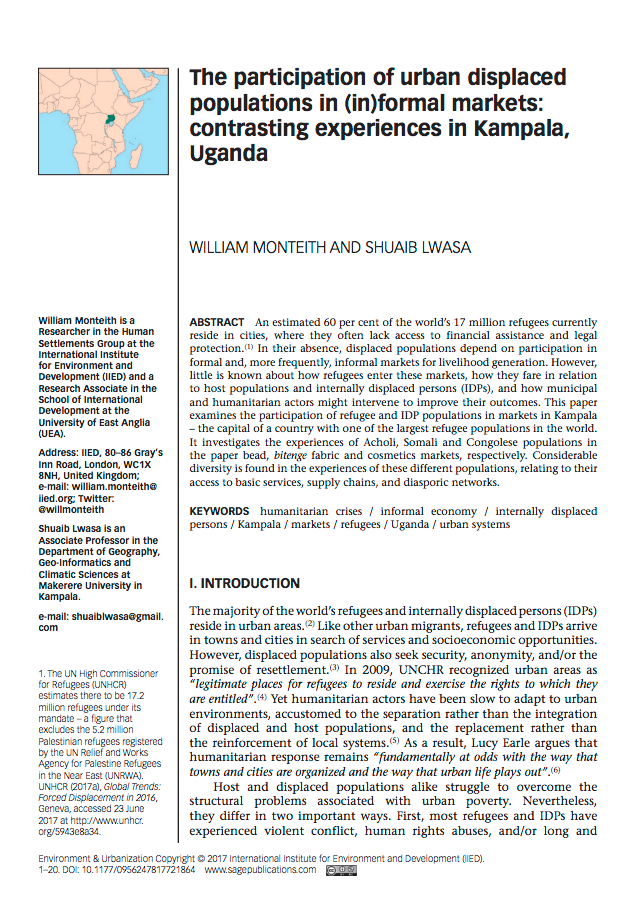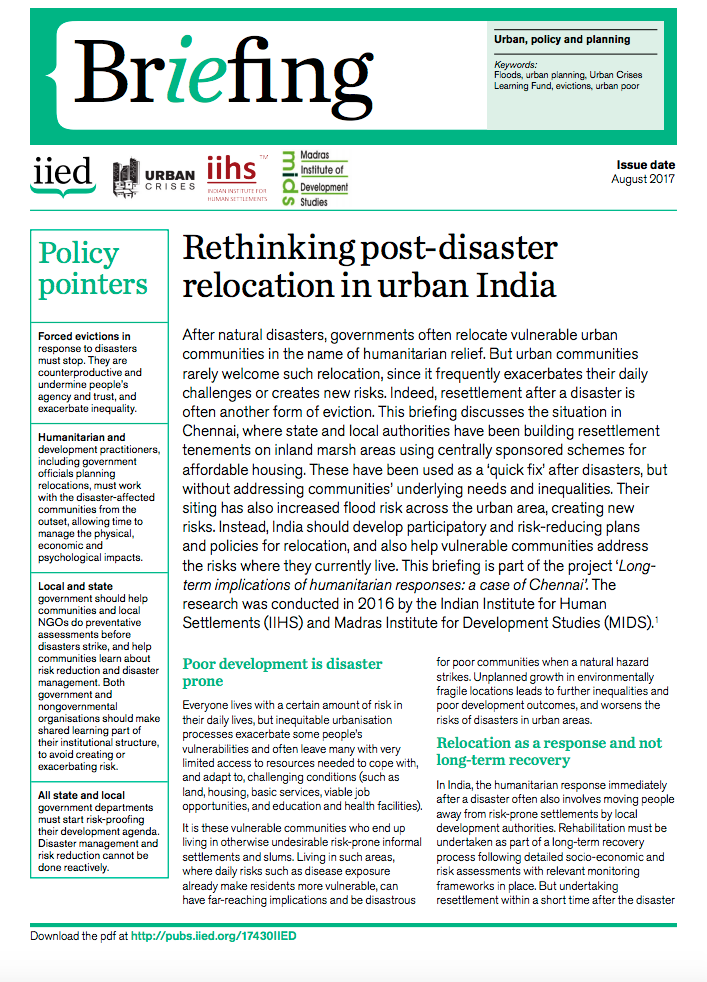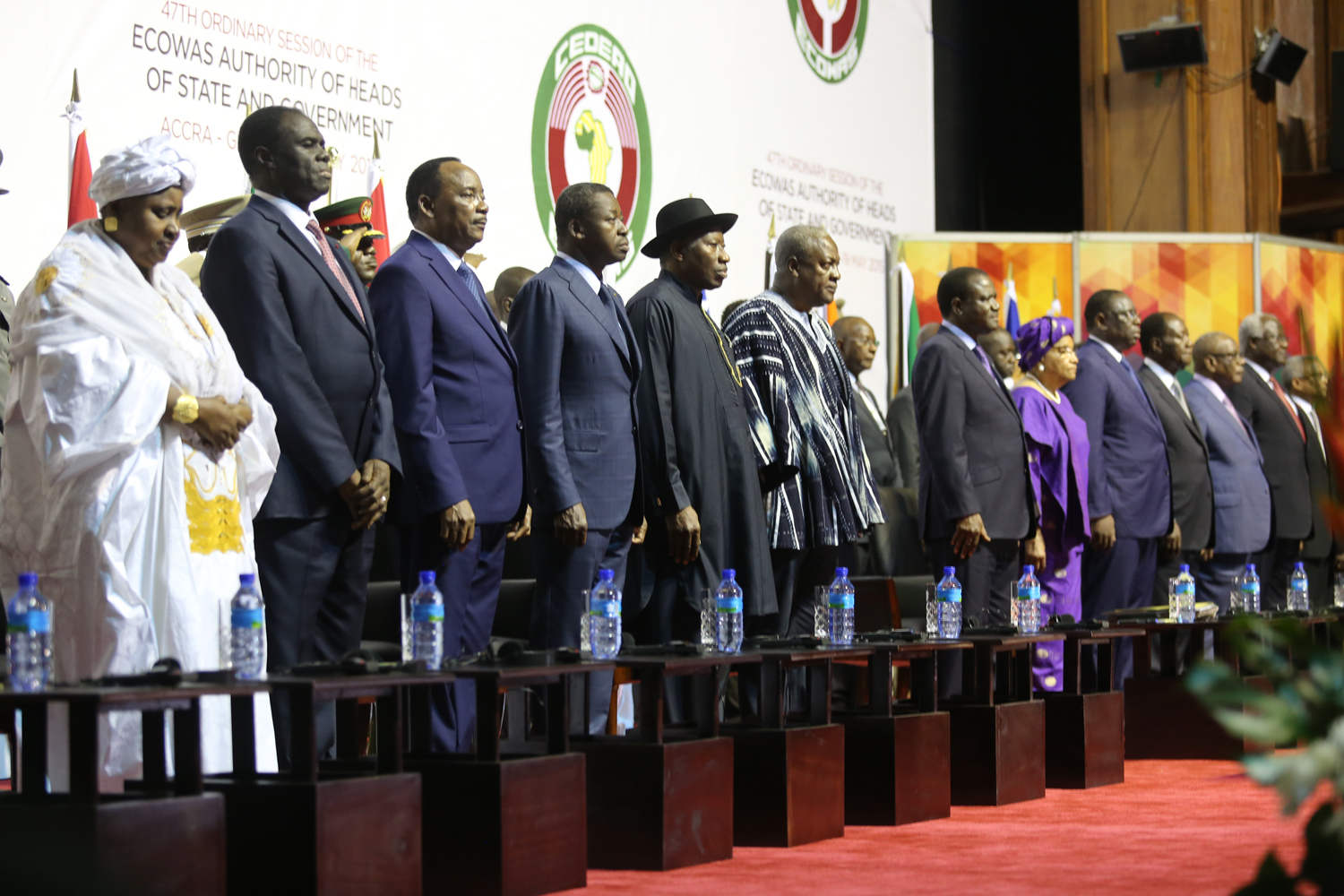Focal point
Location
Mission
Our mission is to build a fairer, more sustainable world, using evidence, action and influence in partnership with others.
Who we are
IIED is one of the world’s most influential international development and environment policy research organisations. Founded in 1971 by economist Barbara Ward, who forged the concept and cause of sustainable development, we work with partners on five continents. We build bridges between policy and practice, rich and poor communities, the government and private sector, and across diverse interest groups. We contribute to many international policy processes and frameworks, including the Intergovernmental Panel on Climate Change, the Millennium Ecosystem Assessment and the UN conventions on climate change and biological diversity.
What we do
IIED carries out research, advice and advocacy work. We carry out action research — generating robust evidence and know-how that is informed by a practical perspective acquired through hands-on research with grassroots partners — and we publish in journals and maintain high research standards. We advise government, business and development agencies, and we argue for changes in public policy. We focus on bottom-up solutions, stay open to flexible, adaptable solutions and are marked by a tradition of challenging conventional wisdom through original thinking.
Resources
Displaying 96 - 100 of 367The participation of urban displaced populations in (in)formal markets: contrasting experiences in Kampala, Uganda
An estimated 60 per cent of the world’s 17 million refugees currently reside in cities, where they often lack access to financial assistance and legal protection.(1) In their absence, displaced populations depend on participation in formal and, more frequently, informal markets for livelihood generation.
Rethinking post-disaster relocation in urban India
After natural disasters, governments often relocate vulnerable urban communities in the name of humanitarian relief. But urban communities rarely welcome such relocation, since it frequently exacerbates their daily challenges or creates new risks. Indeed, resettlement after a disaster is often another form of eviction. This briefing discusses the situation in Chennai, where state and local authorities have been building resettlement tenements on inland marsh areas using centrally sponsored schemes for affordable housing.
Rethinking post-disaster relocation in urban India
After natural disasters, governments often relocate vulnerable urban communities in the name of humanitarian relief. But urban communities rarely welcome such relocation, since it frequently exacerbates their daily challenges or creates new risks. Indeed, resettlement after a disaster is often another form of eviction. This briefing discusses the situation in Chennai, where state and local authorities have been building resettlement tenements on inland marsh areas using centrally sponsored schemes for affordable housing.
Rethinking post-disaster relocation in urban India
After natural disasters, governments often relocate vulnerable urban communities in the name of humanitarian relief. But urban communities rarely welcome such relocation, since it frequently exacerbates their daily challenges or creates new risks. Indeed, resettlement after a disaster is often another form of eviction. This briefing discusses the situation in Chennai, where state and local authorities have been building resettlement tenements on inland marsh areas using centrally sponsored schemes for affordable housing.
La construction des grands barrages en Afrique de l’Ouest soumise à une nouvelle directive
Date : 27/07/2017
Source : Foncier & Développement
La 78ème session ordinaire du Conseil des Ministres de la CEDEAO qui s’est tenue à Monrovia (Libéria) les 1er et 2 juin 2017 a adopté une directive relative au développement d’infrastructures hydrauliques en Afrique de l’Ouest. Cette nouvelle directive entre donc en vigueur à partir de ce jour sur l’ensemble du territoire des pays de la CEDEAO.






